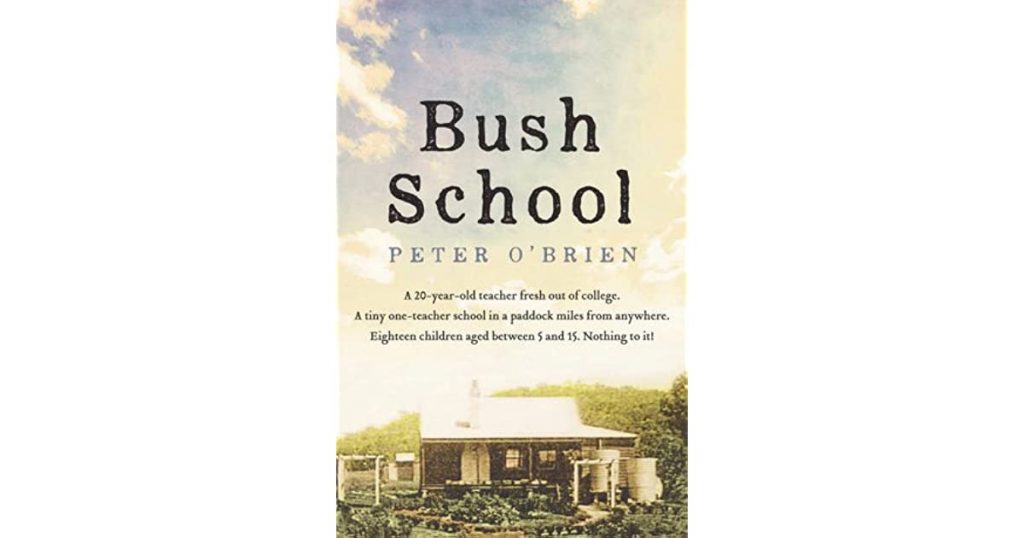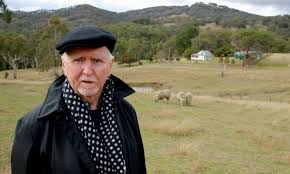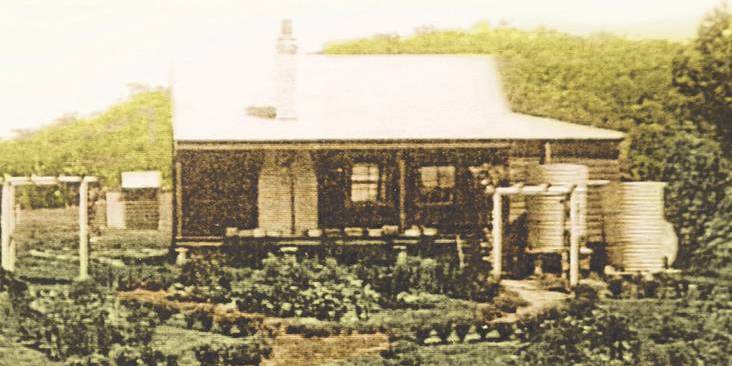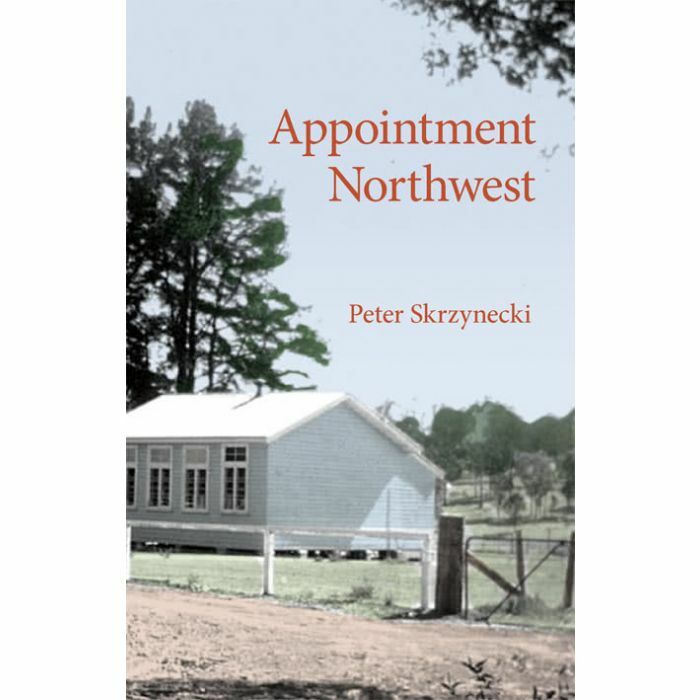Bush School, Peter O’Brien, Australia, 2020

Sitting awkwardly somewhere between a memoir and a teaching manual, Bush School tells of O’Brien’s appointment to the small New England school of Weibonga in 1960 when he was twenty. The blurb on the front cover claims that he was ‘fresh out of college’, but prior to his country appointment he taught for two years in Leichhardt, Sydney, which must have given him some valuable teaching experience. The book, written sixty years further on is filled with vivid detail – names, places, events, what people and students looked like and said, what O’Brien thought and said – and I assume that, when writing the book, O’Brien would have been completely reliant on well-kept diaries. In spite of this, the young O’Brien is well and truly hidden behind the maturity and the experience of the older O’Brien. In those places where it could have been possible to catch a glimpse of the real 20-year-old O’Brien, I felt that emotional observations or responses have been tidied up and altered by his older self.

Having attended Balmain Teachers’ College some years after O’Brien and having also experienced a country appointment at a similar age, I was more than prepared to enjoy Bush School. The back story – his disrupted love life, the horrors of boarding – though not my experience, is both interesting and compelling; the schoolroom story, on the other hand, is just a little too educational for my liking. I would have liked to have read more about O’Brien’s emotional turmoil as a young, inexperienced teacher, being thrown into a situation where he was not only expected to teach several grades at the same time but was also supposed to teach infants to read, a skill he had barely skimmed the surface of during his college days.
Instead, we are presented with someone who obviously not only has everything well and truly under control but is able to take teaching method to the next level with advice for others placed in similar situations. For me it is clear that O’Brien is using Bush School as a vehicle to share some of the results of his decades of experience in the classroom. Although met with challenges, he never seems to falter, and in all situations remains very much in charge – of himself, the children and the challenge itself. This may be a good thing, and his many teaching ideas and observations are extremely interesting and worthwhile, but the book is definitely coloured by later experiences and the accumulated wisdom of eighty-year-old O’Brien.

Although O’Brien’s descriptions of his bed at one end of a verandah, his monotonous daily meal of rabbit and squash, with no variation, and his unsatisfied need for adult conversation add a more honest and vulnerable perspective to the story, Bush School is predominantly an old man’s brightly polished and shiny reminiscence of what happened all those years ago. Unfortunately, it does not allow the reader to properly experience the young man’s inadequacy, unavoidable mistakes or possible desperation. The writing is at times tedious, and on more than one occasion I found myself checking to see how many pages I had left to read.
Several years ago I read a similar book, Appointment Northwest by Peter Skrzynecki (pronounced shen-esk-ki). Skrzynecki’s book tells about his appointment to a one-teacher school in Jeogla, also in the New England district of NSW. The year is 1967. Unlike O’Brien, this is Skrzynecki’s first appointment after finishing teachers’ college, and he is twenty-two years of age.

Three things stood out for me: Skrzynecki’s honesty; his acute sense of detail and his naïveté. Also written years after the events described, the book manages to retain the innocence and the immaturity that would have been the defining characteristics of a twenty-two-year-old young man on the brink of a teaching profession – characteristics that were also a definite hallmark of the period in general. The book gains considerably from the fact that Skrzynecki, looking back over decades of life experience, does not seek to update his actions and thoughts from this period. Readers who stumble along with the author through the uncertainty, the anxiety and the bliss of those early adult years should easily be able to draw parallels with the apprehensions and experiences that coloured their own entrance into adulthood.
Skrzynecki’s honesty regarding his innermost thoughts and feelings is to be commended, and it is this honesty that gives his book both depth and credibility.
Even if 80-year-old O’Brien has not completely succeeded in giving a fully credible picture of 20-year-old O’Brien’s response to his country placement, he has at least given an indication of some of the thoughts and ideals that he must have pondered over and developed during an admirable career that spanned several decades, and in this respect the book has no doubt achieved what it set out to do.